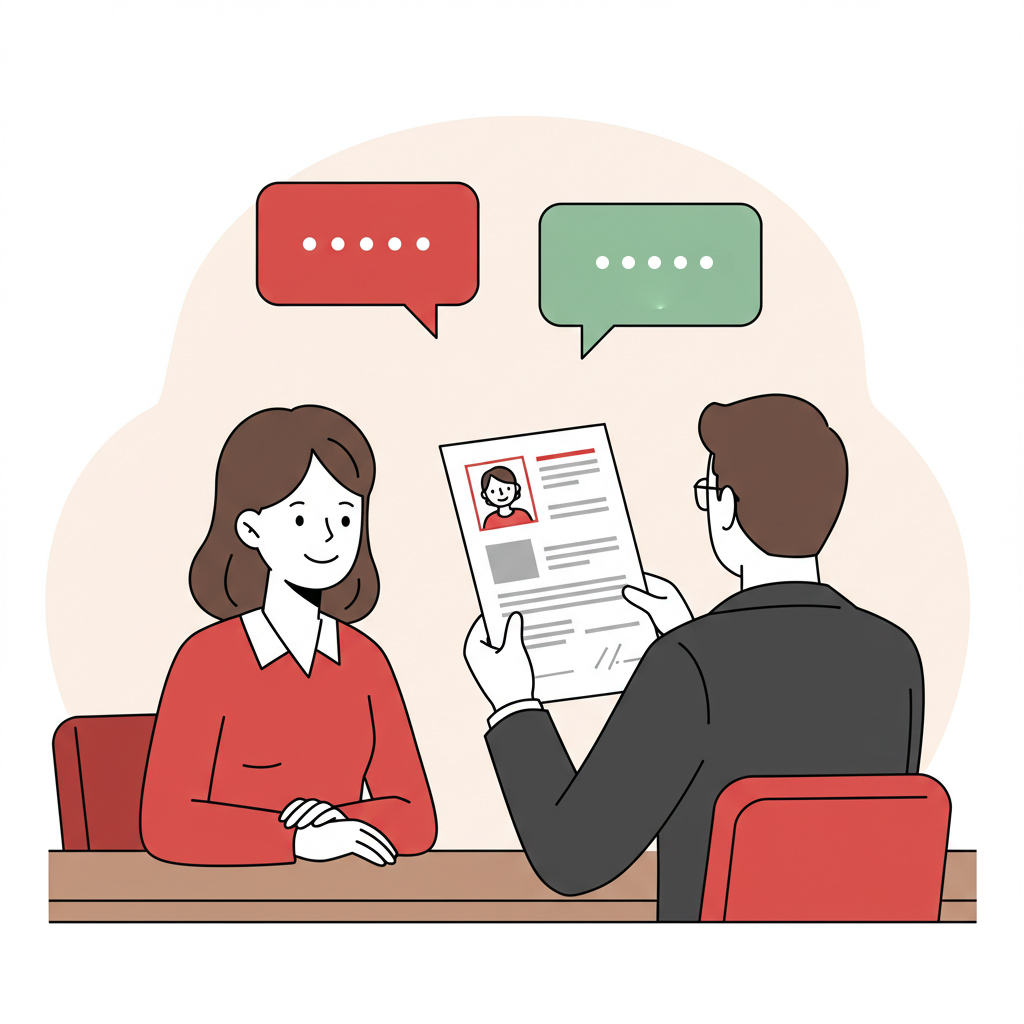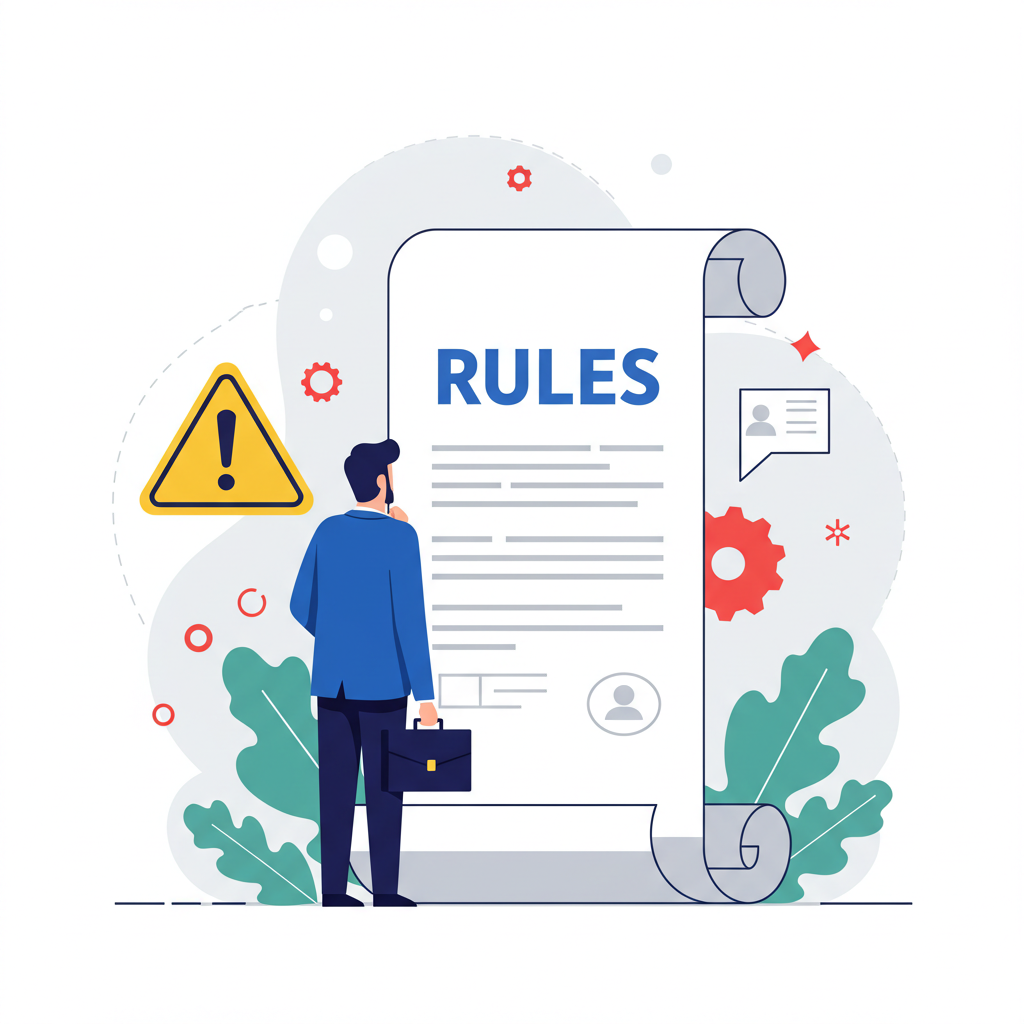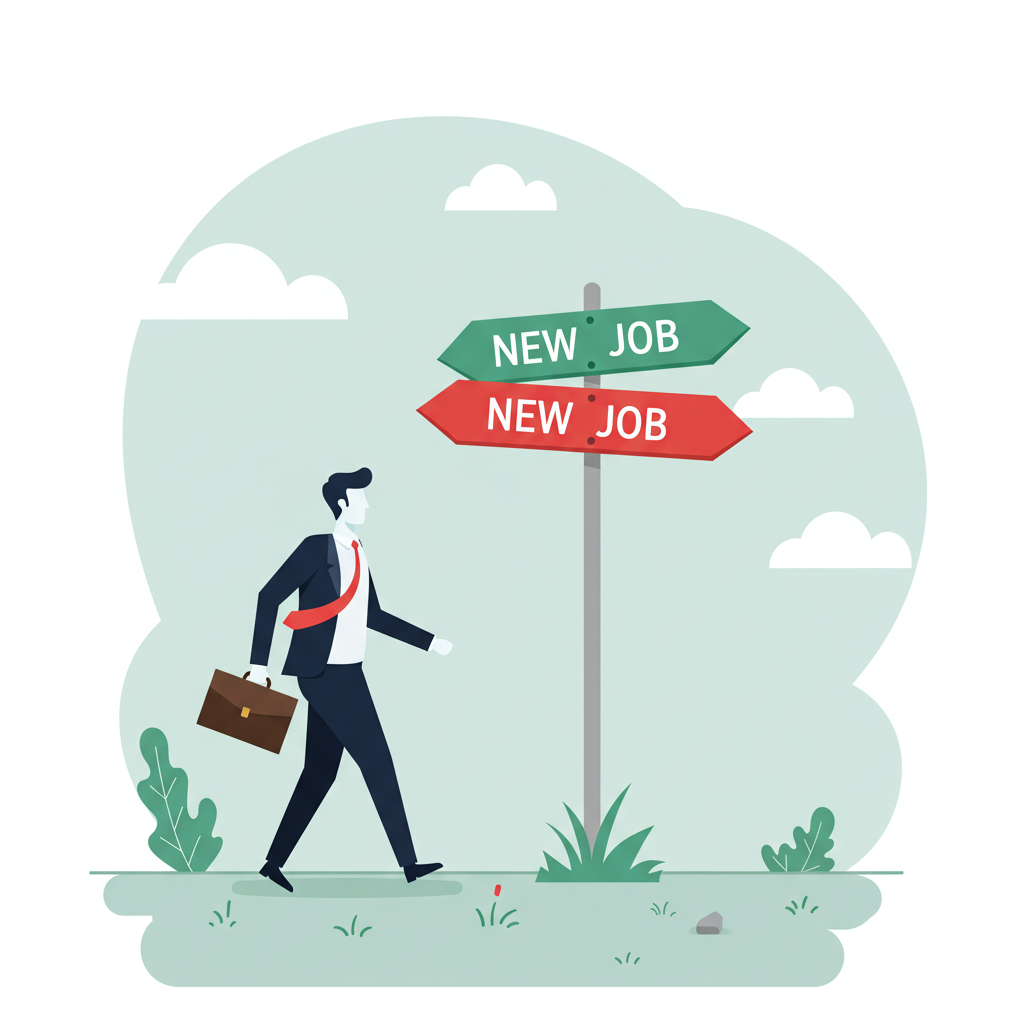When a company interviews potential applicants, they are not only looking for someone who has the skills needed for the position but also has the personality traits that will make them a good fit for the company in the long term.
Purpose of Interview Questions
Job interviews are more than just a formality. Interview questions are designed to assess whether the candidate is a good fit for the job, the team, and the company. The questions you’ll be asked are there to evaluate your hard (technical) and soft skills, cultural fit, and long-term potential. Employers are looking to learn how you think, react under pressure, and whether your goals align with what they can offer.
Most interviewers will ask a combination of traditional, behavioral, situational, and cultural fit questions. Most likely, some combination of technical or role-specific questions will also be included, especially for specialized positions. With the rise of AI-scripted answers and fake job applications, you might expect a healthy mixture of all. Each question type reveals something different about your readiness and personality, so knowing how to navigate them is key to making a strong impression.
How This Guide Will Help
This guide categorizes 60 of the most commonly asked interview questions to help you prepare efficiently and thoroughly. Each section will walk you through:
- What the interviewer is really looking for
- Sample answers that sound natural and professional
- Tips on how to craft a strong response
- Pitfalls to avoid
We’ll also share expert advice on body language, tone, and post-interview etiquette - everything you need to turn your next job interview into a compelling conversation that hopefully gets you hired at the end.
With that in mind, here are the 60 most common job interview questions asked of applicants. Granted, hiring managers are not going to ask you all of these questions in your job interview, but it helps to formulate answers for all of them in your mind so you can feel confident and articulate with your answers. Both of these qualities are highly valued in the workplace, and they help ensure your job interview is a memorable one in the eyes of a recruiter or hiring manager. Read on or jump to the list of questions that interest you the most:
Job Interview Questions About You
Job Interview Questions About Your Work Ethic
Job Interview Questions About Your Previous Work Experience
Job Interview Questions About the Position
Job Interview Questions About the Company Where You're Applying
Job Interview Questions About Your Future Plans
Job Interview Questions About You

These are the classic questions that focus on your work history, professional skills, and background. They help recruiters find out more about your career path and personal story. One might argue these are the easiest to answer, but also the trickiest. People generally love talking about themselves and can inadvertently blurt out something that will not reflect well on you during the interview. Also called traditional questions, they can include the following:
1) Can you tell me more about yourself?
Answer: "I'm a marketing professional with five years of experience in digital campaigns, SEO, and content strategy. I enjoy looking for creative ways to connect with our target audience and thrive in environments where the team comes together to brainstorm and deliver results. Outside of work, I love photography and exploring new places. I have a dog I often go trekking with - it helps me stay inspired."
2) Can you describe yourself in three to five words?
Answer: "Curious, reliable, empathetic, and resourceful."
3) What would your co-workers say about you?
Answer: "My teammates often say I’m someone who keeps things moving forward. I’ve been told that I'm a calming presence in stressful situations and that I’m a good listener. When we as a team are working through challenges, I am often the voice of reason and can refocus and reframe the conversation from being antagonistic to being productive."
4) Do you consider yourself successful?
Answer: "Yes. Success for me isn’t just about promotions, titles, or income. It’s about learning, personal growth, and making a positive impact. I’ve reached the goals I’ve set for myself and helped others succeed along the way. I am very proud of this."
5) Can you describe your working style?
Answer: "Organized and goal-oriented. I tend to break down complex tasks into manageable steps and prioritize effectively. While I enjoy independent work, I also value team input and believe the best results come from open communication and collaboration."
6) Are there any professional aspects that you feel you need to improve on?
Answer: "I try to improve my delegating abilities, especially when leading a project. I’ve always had a strong sense of ownership, but I’ve learned that trust and delegation not only improve teamwork, but also bring out the best in everyone."
7) Are you a team player?
Answer: "Absolutely. Great work always comes from synergy. I always strive to contribute to the project I'm working on in a way that helps the entire team succeed, not just individual team members. At the same time, I personally believe that there is always room for different perspectives, so I try to make everyone’s voice heard."
8) What is your philosophy towards work?
Answer: "My philosophy is that work should be purposeful. I believe in doing things well and staying accountable. I also think enjoying your work matters because when people are engaged, they do their best work."
9) What motivates you?
Answer: "I’m motivated by progress and seeing the impact of my work. Learning something new is also a great motivator. I find a lot of satisfaction in solving problems and knowing that what I do contributes to a larger goal."
10) What irritates you about your colleagues?
Answer: "I focus on trying to understand something rather than getting irritated. I am human, though, and I have found it somewhat challenging when there is a lack of accountability. I’ve learned to address it professionally by encouraging open conversations and shared expectations."
How to Answer Questions About Yourself
These questions should be answered from a personal point of view, but try not to be overly personal in your answers. You’re, after all, attending a job interview, not a friends’ get-together - stay professional at all times. With that in mind, these tips will help you provide good answers:
✔️ Be authentic! Answer in a genuine way that reflects your personality. Still, you should frame your answers in a way that conveys your professionalism and suitability for the role.
✔️ Keep all answers positive. Even when you’re discussing the reasons why you left your previous job, the answer should have a positive connotation. If you’re discussing areas for improvement, you can talk about challenges you handled constructively.
✔️ All your answers should be related to the role. For example, when you’re describing yourself in a few words, the qualities you mention should be valuable for the position, like team player, motivated, and adaptable.
✔️ When answering questions about yourself, you should show self-awareness. Let’s say you get this question: Are there any professional aspects that you feel you need to improve on? You should show that you understand your own areas for growth. This shows humility and a willingness to improve.
✔️ Balance confidence with humility. Of course, you’re proud of your achievements, no matter how many and how big they are. But you should never come across as arrogant.
✔️ Practice storytelling. Anchor your answers to real work situations and examples from your experience, which will make your responses more memorable.
✔️ Read the room. Tailor the depth or tone of your answers based on the interview’s flow. If it’s formal, stay concise and professional. If it’s more conversational, feel free to open up slightly more.
✔️ Prepare, but don’t memorize. Sounding over-rehearsed will make your answers feel robotic. Practice delivering your answers naturally.
Job Interview Questions About Your Work Ethic

Work ethic-related questions assess how you behave in a professional setting, from how you manage your time to how you handle responsibility and respond to feedback. They uncover your motivation levels and how you've grown from past experiences, whether good or bad. Recruiters ask them to determine whether you're dependable, consistent, and capable of both working independently and as part of a team. Strong answers in this category will show that you're not only a skilled professional but also have a strong moral compass and can be relied upon to do the right thing.
Sample questions may include:
1) What would your direct reports say about you?
Answer: "They'd probably say I'm approachable and fair. I make a point to listen and give credit where it's due. I've also been told I'm good at breaking down big-picture goals into actionable steps, which helps the whole team stay on track."
2) Could you tell us about your career to date?
Answer: "Sure. I started in customer support, which gave me a strong foundation in client communication. From there, I moved into account management, where I led cross-functional projects. Over the last few years, I've focused more on strategy and team leadership."
3) Have you ever received difficult feedback? How did you handle it?
Answer: "Yes. A former manager once pointed out that I was too hesitant to delegate. At first, it stung, but I reflected on it and took action. I started small by assigning parts of projects to team members and saw how much more efficient we became."
4) What have you done to improve your knowledge/skills/experience in the past year?
Answer: "I completed a certification in Agile project management and also joined a peer learning group. Both have helped me sharpen my communication and planning skills, especially in fast-paced environments."
5) What would you (or your old boss) say are your strongest points?
Answer: "My last boss would say I'm dependable and solution-oriented. I often took the initiative to resolve client issues before they escalated, and I was trusted to handle key accounts independently."
6) What would you (or your old boss) say are your weakest points?
Answer: "One point raised was that I sometimes overcommit. I've since worked on this by setting clearer boundaries and using task prioritization tools to stay realistic about my capacity."
7) Have you had any issues with your previous boss or manager? What is it, and how was it resolved?
Answer: "There was a time when our communication styles clashed - I preferred email, they preferred face-to-face updates. We eventually had a conversation and agreed on a weekly sync-up, which improved our workflow."
8) Can you explain the gap in your employment (if any)?
Answer: "Yes, I took six months off after a family relocation. During that time, I took online courses in data analysis and volunteered to help a local nonprofit with reporting, so I stayed engaged and continued learning."
9) How do you fit with our company in terms of culture?
Answer: "I've researched a bit, and the message that comes across is that your company values collaboration and continuous learning. Those align closely with how I work. I enjoy sharing ideas, mentoring colleagues, and always finding ways to improve."
10) How would you handle it if your boss was wrong and you were right?
Answer: "I'd approach it respectfully and handle it as a conversation and not a confrontation. Something like, 'I see it a bit differently, can I walk you through my reasoning?'"
How to Answer Questions About Your Work Ethic
Interviewers ask these questions to assess your professionalism, dedication, and ability to handle challenges. You have to give a strong answer since your chances of a job offer depend on it. These tips will help:
✔️ Show integrity! You should be honest when answering these questions. When discussing feedback, weaknesses, or past challenges, you should demonstrate accountability. Although it may be difficult to talk about your weaknesses, an employer will value a candidate who owns their actions and learns from mistakes.
✔️ When answering a question about your strongest points, you should provide some evidence. You can mention examples of times when you've taken the initiative to improve your skills or resolve conflicts. The point is to show your proactive mindset. If you relied on academic CV writing help to complete your resume, refer to it to get inspired for an answer.
✔️ When discussing the difficulties you've faced in your career so far, you should focus on a positive outcome. For example, if you're talking about employment gaps, you can mention the constructive steps you took, such as online courses or even traveling, that helped you learn.
✔️ Always align your answers with the company's values. Before the interview, research the company's culture. Then, you'll give your answers in a way that shows how your values align with theirs. For example, when the interviewer asks how you fit with the company culture, you can discuss qualities such as collaboration, innovation, or customer focus. Think about the skills that make you the right fit.
✔️ Always be honest. That's the highest level of professionalism. Avoid giving generic or insincere responses, as they won't make you stand out. Reflect on your genuine work habits and articulate them, but maintain a professional tone.
✔️ Back up every quality with an example. Saying you're "detail-oriented" is not enough - mention a time when that quality helped the team or project succeed.
✔️ Don't shy away from discussing your past mistakes. Just frame them around what you learned and how you've grown.
✔️ Match tone to the role. A more creative field invites storytelling, while a more technical field may require a precise and structured response.
Job Interview Questions About Your Previous Work Experience

Hiring managers ask these questions to understand your work habits, values, and how you handle real-world challenges. They help recruiters assess how you contributed in your past roles and how you handled success, as well as, more importantly, adversity. And finally, they want to see whether your past working style aligns with how their team operates today. This is your opportunity to show not just what you've done, but how it shaped the professional you are now.
1) Why did you leave your last job?
Answer: "I left to explore new opportunities for growth. While I appreciated the experience I gained, I reached a point where I felt my learning curve had flattened, and I was eager to take on more responsibility and challenge myself in new areas."
2) When were you most satisfied at work?
Answer: "I felt most satisfied when I was leading a client onboarding project that required cross-departmental collaboration. We launched on schedule, with no delays or issues. And it was an incredible feeling to see our efforts pay off."
3) What are the useful lessons you learned at your job?
Answer: "I learned the value of proactive communication, especially when working with remote teams. Small updates and clarity in emails saved us time and prevented misunderstandings that could've led to delays."
4) What are the mistakes you learned from?
Answer: "Early on in my career, I tried to handle everything myself instead of asking for help. I've since learned that teamwork and seeking input often lead to better outcomes. Now, I know when to bring in others."
5) Have you ever been fired or forced to resign?
Answer: "Yes, once early in my career. It was a mismatch in expectations for the role. It was tough, for sure. But it gave me clarity on what I wanted from my future work and showed that I had the strength to move forward."
6) Can you tell us about a time when you helped resolve a dispute between co-workers?
Answer: "Two team members had conflicting ideas about task ownership. I facilitated a quick meeting, helping each person share their perspective. We clarified roles and agreed on a shared timeline. Things improved after that."
7) Can you tell us about any suggestions/solutions you gave? How did your previous company use it?
Answer: "I suggested creating a template for recurring client reports, which reduced time spent by 30%. It was adopted by the entire department and became part of the onboarding guide."
8) What has disappointed you at your old job?
Answer: "I was disappointed by the lack of structured feedback. I addressed it by scheduling regular check-ins with my manager and eventually helped implement peer-to-peer reviews across the team."
9) How does your past work experience prepare you for the job you're now applying for?
Answer: "My previous role involved managing multiple stakeholder groups, tight deadlines, and data-driven decision-making. Those skills directly apply to this role, especially with the cross-functional collaboration it requires."
10) Do you think your previous work experience matches the needs of this new role?
Answer: "I would think that it aligns pretty well. My background and experience in project management and client relations have given me the skills to contribute effectively from day one. I'm confident I can quickly adapt to your systems and priorities."
How to Respond to Questions About Your Previous Work Experience
When attending an interview, you'll most definitely get a question about your background. Employers use these questions to evaluate your problem-solving skills. They want to know how well you learned from previous challenges. They also want to assess your professionalism. Here's what to keep in mind when answering:
✔️ Be transparent. If a potential employer asks about your reasons for leaving a job, share them. Be candid, but be careful not to speak negatively about previous employers. Always focus on the learning opportunities available to you. For example: "I left to pursue new challenges and opportunities for growth. I felt that my potential was limited in that role."
✔️ Mention the positive contributions you made. You can focus on achievements and valuable lessons, too. Wherever you've worked before, you added value. Tell your potential employer about it.
✔️ Link your experience to the new role. How are your previous responsibilities connected to the job you're applying for? The interviewer wants to see if you can fit in without too much investment in the onboarding process.
✔️ The employer may ask you what disappointed you at your old job. It's a tough question to answer, but you have to be honest yet respectful. The way you frame the disappointment is important. Use positive language and describe the steps you took to resolve or move beyond the disappointment. This is not the time and place to vent about your toxic colleagues or incompetent boss.
✔️ Use the STAR method (Situation, Task, Action, Result) to give your answers, especially for problem-solving or conflict-related questions.
✔️ Avoid sounding rehearsed. Speak naturally but with clarity. It's okay to pause briefly to gather your thoughts.
✔️ Talk numbers. Use specific metrics or results whenever possible to support your contributions, such as percentages, timelines, and outcomes.
✔️ Don't dodge the tough questions. If you were laid off or let go, be honest and reflective, not defensive.
Questions About the Position

Interviewers ask questions about the specific position to ensure that you understand what the role requires and to assess whether you're mentally and practically prepared to succeed in it. These questions test your knowledge, clarify your expectations, and uncover how proactive and adaptable you are. Employers want to see that you've thought through your decision to apply, not just that you're capable, but also that you're genuinely invested in the role and the company.
1) What experience do you have in this field?
Answer: "I've worked in data analysis for the past three years, primarily using Excel and Power BI to create performance dashboards and support decision-making. In my last role, I led monthly reporting for the sales team, which I believe translates well to the analytics responsibilities of this role."
2) How long would you expect to work for us if hired?
Answer: "I'm looking for a long-term opportunity where I can grow professionally. If there's room for development and I'm contributing meaningfully, I see myself staying for several years."
3) If hired, can you describe your strategy for the first 90 days?
Answer: "My first three months will be focused on learning: understanding the team's processes, getting clarity on goals, and building relationships. I strive to contribute early by identifying small wins and gradually taking ownership of larger projects."
4) How do you plan to establish yourself quickly in the team?
Answer: "I'd start by meeting and understanding each team member's role and preferred style of working. I will certainly aim to add value early, utilizing insights, my previous experience, and offering help where needed."
5) What are the strengths that you bring to the team?
Answer: "I bring a calm approach to problem-solving and a collaborative team-first mindset. I'm also very tech-savvy, which helps me streamline workflows and simplify a lot of processes."
6) What do you see as your weaknesses?
Answer: "I used to struggle with public speaking. To improve, I joined a Toastmasters club and now regularly present at team meetings. It's still a work in progress, but I've become more confident and concise."
7) What kind of salary are you expecting?
Answer: "Based on my professional experience and research of the industry standards, I'm looking for something between $X and $Y."
8) Are you willing to relocate?
Answer: "I'm definitely open to relocation for the right opportunity. I'd just need a little lead time to plan the transition and manage it smoothly."
9) Are you willing to travel?
Answer: "Yes, occasional travel is something I'm comfortable with, especially if it supports client relationships or team collaboration."
10) Are you OK with working overtime/weekends/holidays?
Answer: "I understand that some roles require extra hours during peak periods. I'm open to working overtime or weekends when needed, especially if there's clear communication and it's part of a shared team effort."
How to Answer Questions About the Position
Employers will ask different questions to see how you understand the role you are applying for and how you would fit into it. They want to know what you expect and how well your skills align with the company's needs. There's a right way to approach these questions:
✔️ Focus on the most relevant experience you have. Mention the skills and knowledge that are directly related to this role. You can show how your background makes you a strong fit. Let's say you get this question: "What experience do you have in this field?" This is an example of a good answer: "I've spent two years working in digital marketing. I developed skills in SEO, content strategy, and social media management. I believe those skills align closely with this role's responsibilities."
✔️ Show your enthusiasm for the role. This is not the time to talk about money. Instead, express your excitement about getting started and making an impact.
✔️ When asked about your strengths and weaknesses, be honest and on point. Talk about the qualities that are relevant to the role. When mentioning a weakness, you can explain what steps you're taking to improve it and turn it into a strength.
✔️ You should be very clear about your long-term commitment. Do you have a desire to grow within the company? The employer will be interested in your plans for development in this role.
✔️ When the interview gets to the point of discussing salary, you should clarify your expectations. If you're flexible, it's OK to ask about the company's range so you can negotiate on the full benefits package.
✔️ Tailor your answers based on the job description. Use key terms from the posting to echo the company's needs.
✔️ Don't guess on technical questions. If you're unsure, be honest and show your willingness to learn.
✔️ Be realistic but flexible. Especially with questions about relocation, travel, or hours, try showing openness instead of reluctance.
✔️ Frame your answers in terms of value. Instead of focusing on what you want, emphasize how you can contribute and grow with the company.
Questions About the Company Where You’re Applying

Questions about the company help interviewers assess how prepared you are, which in turn shows how much you really want this. They’re looking for candidates who are interested in them, not just a job. These questions reveal your curiosity, commitment, and awareness of the company’s position in the market. By showing that you’ve done your research, you demonstrate that you are serious about contributing to the organization’s success.
1) What do you know about our company?
Answer: "I know you're one of the leading fintech companies focused on simplifying online payments for small businesses. I read about your recent partnership with Stripe, and I thought that was a smart move. Your focus on customer experience really stood out to me."
2) What are your thoughts about the future of our industry?
Answer: "I know the industry is evolving quickly, especially with automation and AI tools entering the space. There’s a strong demand for platforms that offer fast, secure, and user-friendly financial solutions—exactly what your company seems to prioritize."
3) Why do you want to work for this company?
Answer: "I admire the way your team blends innovation with a people-first approach. I’m looking for a place where I can grow and contribute to something meaningful, and your mission really aligns with that."
4) Do you know anyone who works in our company?
Answer: "I don’t personally know anyone at the company, but I’ve read positive reviews about the team culture and growth opportunities from current employees on LinkedIn."
5) Do you know who our competitors are?
Answer: "Yes, I believe your main competitors include [Competitor A] and [Competitor B]. They offer similar services, but your focus on transparency and customer support really sets you apart."
6) Do you have any idea how we can overtake our most successful competitors?
Answer: "I think doubling down on personalization and client education could really help. A lot of companies overlook onboarding and ongoing support—that’s where you can win loyalty."
7) Are you willing to put the interests of the company before your own? What are the situations in which you would say no?
Answer: "I always act in the company’s best interest. That said, I think it’s also important to raise concerns if something seems unethical or harmful."
8) What position do you want to take on a team? Leader or follower?
Answer: "I’m comfortable with both. I’ve led projects before, but I also know how important it is to listen and support others when they’re leading."
9) Do you have any areas of concern we should know about?
Answer: "Not at the moment, but I’d appreciate learning more about the team structure and how performance feedback is handled here."
10) Do you think you are overqualified/underqualified for this position?
Answer: "I’m well qualified, but also eager to learn more. I see this role as a great fit for my skills and a chance to grow in new areas."
How to Answer Questions About the Company Where You're Applying
This is an important part of the interview. The hiring manager wants to see if you’ve done your homework. These tips will help you shine:
✔️ Research extensively before the interview! You need to understand the company’s mission. You’ll also inform yourself about its values and recent projects. Go even further by reading industry news, which you can refer to during the interview. Your goal is to appear as someone informed and genuinely interested in their work.
✔️ Most interviews include questions about your reasons. Why do you want to work for this company? This is the perfect moment to discuss how their values align with yours. Talk about how the product/service aligns with your career goals.
✔️ Understand the entire industry! Being knowledgeable of the market landscape shows that you can see the bigger picture. You can explain why you think this company is better than its competitors and why you chose it for your application.
✔️ If you have any concerns about this job, you can express them constructively. You can ask for clarification, so there will be no unpleasant surprises afterward.
✔️ Look beyond the homepage. Dig into recent press releases, product launches, and social media updates to show deeper interest.
✔️ Prepare a few talking points. Write down 2–3 things you genuinely admire about the company so your answer doesn’t feel generic.
✔️ Speak from experience. If the company’s mission resonates with you personally or professionally, say so, as it adds authenticity to your answer.
✔️ Be real about boundaries. If asked about putting company interests before your own, answer thoughtfully. It’s okay to acknowledge limits in extreme situations.
Questions About Your Future Plans

Employers ask about your future plans to understand your motivation, stability, and long-term alignment with the company. They want to hire someone who’s not only capable today, but who also sees a future within the role and organization. These questions reveal whether you’ve thought about your career path - and if you’re intentional about your growth.
1) Are you applying for other jobs?
Answer: "I’m exploring a few roles at the time, yes. But I’m being very selective and purposeful about this process. I’m really interested in this position because it closely aligns with where I see myself in the future."
2) What are you looking for in this job?
Answer: "I’m looking for a role where I can contribute meaningfully, learn from other experienced professionals, and continue building up my skills."
3) What are you looking for in your next job?
Answer: "I’m looking for a position that offers both challenge and support - a place where I can grow while making a difference to the team and company."
4) What are your long-term goals with your career?
Answer: "My long-term goal is to move into a leadership role where I can guide strategy and mentor newer professionals, especially in project-based environments."
5) Where do you see yourself in three/five/ten years?
Answer: "In three years, I see myself mastering this role and taking on more responsibility. In five to ten years, I hope to be in a senior or management position within the company or industry."
6) How do you want your career to progress?
Answer: "I’d like to grow steadily by taking on more complex projects and learning from mentors along the way. Ideally, I’d move toward roles that allow me to lead teams and drive innovation."
7) Can you tell us about your dream job?
Answer: "My dream job is one where I feel challenged and supported, where I can combine creativity and problem-solving, and where I’m part of a mission-driven team."
8) Do you think you would do well at this job?
Answer: "Yes, I believe so. I have the right mix of experience and curiosity to adapt quickly and contribute from day one."
9) What is more important to you: the money or the job?
Answer: "Both matter, but the role itself is more important. I’m looking for meaningful work and a supportive environment. Fair compensation helps long-term commitment, of course—but I’m most focused on growth and purpose."
10) What will you do if you don’t get the job?
Answer: "I’ll continue looking for roles that align with my goals, and I’ll stay open to future opportunities with your company. I’ve genuinely enjoyed learning about your team."
How to Answer Questions About Your Future Plans
The hiring manager wants to hire someone who would contribute to the company’s growth in the long term. These questions give you a chance to show you’re focused, motivated, and invested in your personal growth in the context of this position. This is the right way to approach them:
✔️ Be honest. You don’t have to be too specific here. Instead, focus on growth within the company and industry.
✔️ You want to show that you’re not just looking for any job. You’re focused on a long-term career path, and this role fits perfectly. Discuss how you plan to continue your professional development over time.
✔️ If you’re asked about the importance of money and job satisfaction, find the right balance with your answer. Of course, you’re after job satisfaction and growth opportunities, but you should also acknowledge that fair compensation is important for your long-term commitment.
✔️ If you’re asked what you’ll do if you don’t get this job, handle the situation with grace. You can say that you’ll continue looking for opportunities to learn and grow, and you’ll maintain your interest in the company for future opportunities. An answer like this will open the door for valuable networking opportunities.
✔️ Be realistic but optimistic. You don’t need to have your entire career mapped out, but show that you have a direction.
✔️ Avoid sounding like you’re using this job as a stepping stone. Even if you plan to grow, frame it in a way that emphasizes your desire to grow with the company.
✔️ Mention learning goals. If you’re unsure about long-term specifics, talk about skills or industries you’d like to explore deeper.
✔️ Leave room for growth. Show openness to opportunities you might not have considered yet - it makes you seem adaptable and curious.
Common Pitfalls and Non-Verbal Signals in Job Interviews

When preparing for an interview, it’s natural to focus heavily on crafting the “right” answers. But communication is about more than just words. What you say matters - but so does how you say it. In fact, your body language, tone of voice, and general demeanor can be just as influential as the content of your responses.
Slouching, avoiding eye contact, speaking in a flat tone, or fidgeting with your hands can unintentionally undermine a well-thought-out answer. Interviewers pick up on these cues - often subconsciously - and use them to form impressions about your confidence, professionalism, and enthusiasm.
Common Mistakes to Avoid
Here are some of the most frequent (and avoidable) interview mistakes candidates make:
❌ Giving vague or generic answers: saying things like “I’m a hard worker” without examples feels empty. Back your claims with specific experiences or results.
❌ Overusing buzzwords without substance: words like “synergy,” “dynamic,” or “go-getter” are fine in moderation, but they need context. What actions on your part demonstrate these traits?
❌ Speaking negatively about former employers or colleagues: even if your last job wasn’t ideal, keep your tone professional. Focus on what you learned and how you’ve grown.
❌ Sounding overly rehearsed or robotic: it’s great to prepare, but don’t memorize your answers word-for-word. Interviews should feel like a conversation, not a script.
❌ Not asking insightful questions at the end: “I don’t have any questions” can come across as disinterest. Ask about team dynamics, company goals, or onboarding processes. Don't overdo it, though. Do not grill the interviewer as if the roles have switched. Ask only about what you are truly interested in.
Mastering Non-Verbal Communication
Non-verbal communication can either help or hinder your answers. It is as important as the words you are saying. For this reason, we have listed below a few tips on what to pay attention to and how to get it right.
Eye contact: make eye contact, but don’t stare. Aim to meet the interviewer’s gaze naturally, especially when listening and responding. If it’s a panel interview, shift your eye contact to each person whose question you are answering at that moment.
Posture: sit upright, avoiding slouching, and keep your shoulders relaxed. During the conversation, lean slightly forward, as this signals interest. And keep in mind that crossing your arms might be misinterpreted as defensive.
Facial expression: smile! A warm expression goes a long way in building camaraderie and rapport. Try to mirror the tone of the conversation: serious when needed but approachable throughout.
Gestures: you can use gestures naturally when speaking, especially if this is a big part of your personality. But try to control it if you know that you might be overdoing it. Rest your hands calmly when not in use; fidgeting is distracting.
Tone of voice: vary your tone to emphasize key points and keep things engaging. A monotone delivery can make even the best answer sound uninspired.
Virtual interview: if your interview is on Zoom or Teams, make sure your lighting is good, your background is neutral, and your camera is at eye level. Look at the camera, not yourself on screen, when speaking.
Free Tools to Practice Mock Interviews
If you want to sharpen your interview skills, particularly your nonverbal communication, mock interviews are an excellent way to practice. Here are some free tools to help:
- Big Interview – offers mock interviews with feedback and AI analysis.
- Parrot Prep – free AI-powered interview practice, great for both technical and general questions.
- Google Interview Warmup – a free tool from Grow with Google for practicing common interview questions with voice or text.
- ChatGPT - simply ask the LLM to practice interview questions with you for a certain role.
These platforms help you get used to answering questions aloud, managing nerves, and improving both verbal and non-verbal presentation.
Conclusion & One Last (Most Forgotten) Tip
BONUS TIP: One of the most overlooked mistakes is forgetting to bring a copy of your resume with you to the interview, even if you’ve already sent it.
And speaking of resumes - if you need one that reflects the true potential of your skills and experience, our expert writers are here to help. Whether you’re stepping into a new industry or aiming for that next career level, we’ll craft a personalized resume that tells your story in the most compelling way possible. After all, interviews can open doors, but it all starts with the document that gets you in the room.
